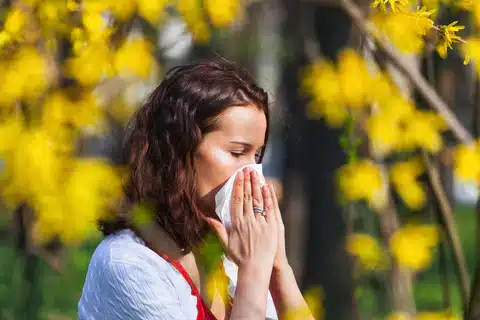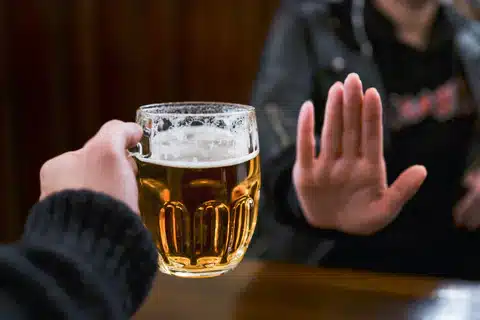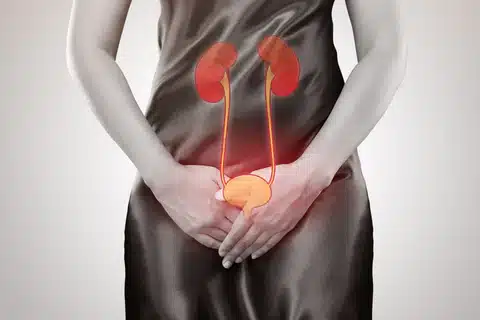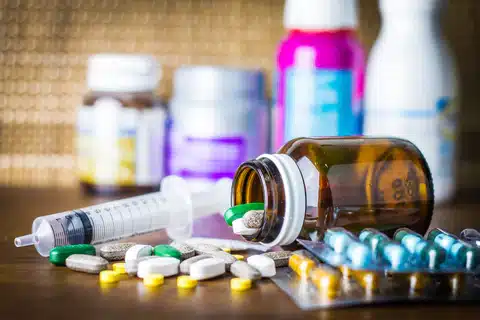Incontinence is already a frustrating condition to work with at times. As a result, you want to ensure that you aren’t contributing to worsening your condition. While simple, unavoidable things like sneezing and coughing can bring on an incontinence accident, there are other lifestyle aspects that can affect you’re your incontinence. So join us today as we discuss the top 8 things that may worsen incontinence.

1: Allergies
While sneezing and coughing are unavoidable parts of life, allergy season can make incontinence responses worse. Sneezing and coughing can bring on an incontinence reaction, which is something the tens of million who suffer from both allergies and incontinence must keep in mind. Ensure you are always wearing appropriate incontinence protection during allergy season. Also ensure you speak to your doctor about controlling your allergies to prevent or limit the amount of sneezing and coughing you suffer from.
2: Drink Water Throughout the Day
Incontinence can be brought on by drinking too much, too quickly. A full ladder increases the likelihood of incontinence. So ensure you space your fluid intake out throughout the day, and ensure that the majority of your fluid intake is water. This ensures you remain appropriately hydrated without feeling the urge to go to the bathroom constantly. Dehydration can also cause an increase in incontinence, by forcing you to intake an excess of fluid at once, causing incontinence, that then requires you to refill with fluids, creating a vicious cycle.

3: Avoid Alcohol
Alcohol is a well known diuretic. This means it will cause you to produce more liquid. In addition to this, drinking alcohol to the point of being drunk as this will reduce your ability to control your bladder muscles. It is best to aim to drink only one alcoholic drink – or, better yet, less – a day to reduce your risk of incontinence.

4: Avoid Caffeine
Caffeinated drinks, like alcoholic drinks, are diuretics. As a result, you should avoid them when you can. Most coffee and tea based drinks have caffeine in them, but other foods and beverages also contain caffeine – including chocolate milk, chocolate bars, lollies, etc. As a result, you need to work hard to limit your caffeine intake.

5: Obesity
Being overweight or obese can affect your incontinence. In fact, being overweight often put pressure on your bladder, weakening the muscles over time. A weak bladder cannot hold as much urine, increasing the likelihood of incontinence.
6: Constipation
Bladder control issues can occur for those with long term or chronic constipation. Constipation and straining to have a bowel movement can out stress or pressure on the bladder and pelvic floor muscles. This, in turn, weakens the muscles and can cause urinary incontinence or leaking. Further, an unemptied bowel can press down on the bladder, creating the constant urge to urinate or cause involuntary leakage. If you are suffering from constipation, contact your doctor for treatment.

7: Infection
An infection can also increase the rate of incontinence. Infections of the urinary tract and bladder may cause incontinence for a short time or worsen an incontinence condition. Bladder control can return or improve when the infection goes away. It is important, as a result, to always discuss an increase in incontinence or the sudden appearance of incontinence with your doctor in case you are suffering from an infection that can be quickly and easily treated.

8: Certain Medications Can Increase Incontinence
Urinary incontinence or an increase in urinary incontinence (if you already suffer from it) can be a side effect of some medications. This is especially true of diuretic medications, also known as “water pills” used to treat heart failure, hypertension, some kidney disease, and liver cirrhosis. The 4 top types of medication linked to urinary incontinence include:
1: Hypertension Medications
Alpha-adrenergic or alpha blockers used in high blood pressure medications work by dilating blood vessels to reduce blood pressure. However in some people these can also relax the bladder, causing urinary incontinence or increasing urinary incontinence. If you are taking an alpha blocker and are noticing urinary incontinence or an increase in urinary incontinence, it is best to discuss the situation with your doctor. Do not stop your medications without speaking with them first.
2: Antidepressants
Antidepressants are often an integral medication for much of the population. However, in some patients, they can worsen the symptoms of incontinence. Antidepressants can impair the ability of the bladder to contract, worsening overflow incontinence as the bladder cannot empty completely. Other antidepressants may decrease your awareness of the need to use the bathroom. If you feel your antidepressant is worsening your incontinence, it is important to discuss the situation with your doctor. Never stop a medication without speaking to your doctor first.
3: Diuretics
Also known as “water pills” diuretics work in the kidneys to reduce blood pressure by flushing excess water and salt from the body. It forces the body to make more urine. As a result, it increases the chance of incontinence or worsening an incontinence condition. If you need a diuretic, you often need to stay on it, so it is best to discuss with your doctor the best way to manage your symptoms better.
4: Sleeping Pills
10% of patients with incontinence actually wet their bed at night. However sleeping pills can pose a problem for those who suffer from incontinence at night. Sleeping pills stop people waking up, even when their bladders are full, making the chance of accidental leakage higher. It is best to try and limit your caffeine and practice healthy sleep habits so you can sleep without the use of sleeping pills where possible. Again, never stop any medication without discussing it with your doctor first.
